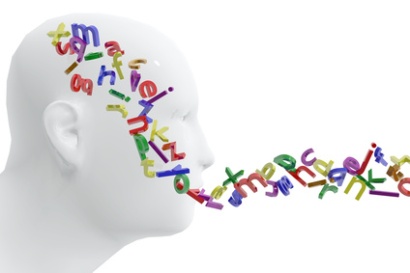 Every couple years, there’s a story in the news that goes something like this: Man (or woman) wakes up from coma speaking previously unknown foreign language.
Every couple years, there’s a story in the news that goes something like this: Man (or woman) wakes up from coma speaking previously unknown foreign language.
Most recently, this is the story that’s been making headlines: Australian Man Awakes From Coma Speaking Fluent Mandarin. It turns out this Australian man isn’t alone, either. He’s in good company with:
- A Croatian teen who awoke form a coma speaking only German
- A Florida man who woke up in a motel speaking only Swedish
- An Englishman who woke up speaking Welsh after a stroke
So what gives? Can a brain injury really result in new foreign language skills?
Speaking in tongues?
Believe it or not, there’s a word for suddenly speaking in a language that’s previously unknown to someone under normal conditions: xenoglossy. Traditionally, this has applied to saints or mystics speaking ancient, archaic languages used in religious scriptures (sort of like Therese Neumann von Konnersreuth …that’s a story for another time). But the modern-day miracle of xenoglossy is one that the media typically attributes to the mysteries of science and the complex nature of the brain.
Indeed, the brain is a fascinating thing — and these are all rather remarkable stories about how the brain acquires language. But what stands out across all these cases are two common threads: 1.) The people lost the ability to speak their native language after a physical trauma, and 2.) They had some exposure to a secondary language that the brain thrust into primary use. As the doctor of the Australian Mandarin-speaker posited:
‘Mahon’s English “circuits were damaged,” so when he woke up his “Mandarin circuits got engaged” like they never had before.’
Unfortunately, this means there isn’t really such a thing a foreign language syndrome (that is, acquiring entirely new language skills as a result of a brain injury). That one appears to be a wishful overstatement by the media — because, hey, the idea of xenoglossy is pretty cool. But the idea that you can temporarily ‘forget’ your native language and be forced to rely on another language stored in the deep recesses of your brain is still pretty incredible. And perhaps that’s why we get the slightly hyperbolic “Man Awakes From Coma Speaking New Language” story every few years.
Bonus tip: There is such a thing as foreign accent syndrome, or a pattern of speech that results from severe medical conditions such as a stroke or head trauma (a famous example of this is George Michael, who woke up from a coma with a temporary new accent). But once again, although the news media typically ascribe a specific regional accent (i.e. American woman suddenly starts speaking with British accent), the speakers apparently develop non-specific, random changes to their speech pattern that only resembles familiar accents. Fascinating, nonetheless.




